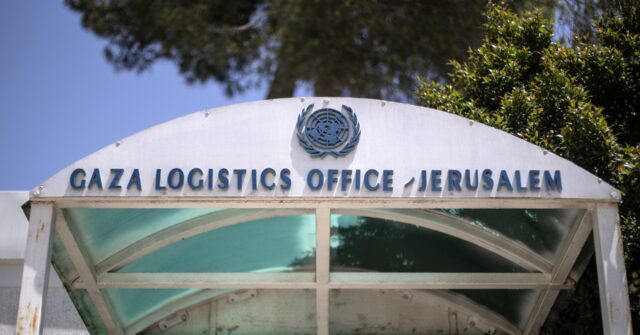On Thursday, the Israeli government announced its decision to expropriate the United Nations Relief and Works Agency (UNRWA) headquarters in Jerusalem, transforming the site into a housing complex. Established as the official UN body to assist Palestinians, UNRWA is crucial for delivering education and healthcare services, particularly in Gaza. However, a growing body of evidence indicates that UNRWA has allowed Hamas, the governing body in Gaza, to focus almost exclusively on terrorism rather than governance, leading to increased scrutiny of its operations. Critics argue that UNRWA’s incentives have fostered a relationship that enables Hamas to utilize its facilities for military purposes, allowing it to cultivate an environment that perpetuates hostility towards Israel.
The catalyst for the Israeli government’s actions stems from the aftermath of the October 7 attack, in which Hamas executed a large-scale assault on Israeli territory, resulting in the deaths of approximately 1,200 individuals and the abduction of around 250, many of whom remain missing. Reports have surfaced suggesting that some UNRWA employees may have participated in these heinous acts, furthering public and governmental criticism of the agency. Following the attack, Israeli authorities disclosed that they had identified numerous individuals affiliated with Hamas working within UNRWA, raising questions about the agency’s operational integrity. The Israeli government has been taking deliberate steps to diminish UNRWA’s influence in the region and hold it accountable for its alleged complicity in terrorist activities.
In light of these revelations, the Israel Land Authority (ILA) moved to formally expel UNRWA from its Jerusalem site, which will now become a housing development with 1,440 units. This decision has garnered some support within Israel, with public figures advocating further punitive measures against the organization and pressing for the expulsion of employees linked to terrorism. Prominent voices in the Israeli government have alluded to the broader objective of dismantling UNRWA as part of the nation’s strategic frame of reference, reflecting a strategic pivot in their dealings with international entities recognized for supporting Palestinians.
Despite these developments, UNRWA’s leadership claims they were not formally notified of their impending eviction and have requested that Israel respect the inviolability of UN facilities. In parallel, the UN has voiced its opposition to a bill introduced in the Israeli Knesset aimed at severing relations with UNRWA entirely. The proposed legislation would criminalize interactions between Israeli officials and UNRWA employees and strip the agency of diplomatic recognition and associated privileges, signaling a significant shift in the dynamic between the UN and Israeli authorities—one that could further exacerbate tensions in an already fraught region.
UNRWA is in Israel under agreements established in 1967, which have historically aimed to facilitate humanitarian efforts. However, as relations between Israel and UNRWA have deteriorated over time, the agency’s role and its involvement in supporting educational frameworks in Palestinian territories have come under more profound scrutiny. Reports have suggested instances where UNRWA schools have propagated antisemitic ideologies, while also providing structures to hide Hamas’ military assets. Such findings have prompted concern from both international observers and the Israeli government over the operational integrity of UNRWA’s humanitarian mission.
As further investigations continue, the complexities surrounding UNRWA’s operations, its entanglements with Hamas, and the nature of its educational programs are under amplified scrutiny. Evidence indicating that some employees participated in acts of terrorism has called into question the organization’s commitment to maintaining a neutral, humanitarian approach. This contentious backdrop, interwoven with narratives of violence and indoctrination, underscores the challenges facing both UNRWA and its critics as they navigate the expectations of a region steeped in conflict, identity, and deeply rooted political animosities. The ramifications of these developments may reshape the contours of international humanitarian efforts in Israel and the Palestinian territories moving forward.

